SiciliaA love letter to the food of Sicily
Sicily is both a frugal peasant land with a simple robust cuisine, and also full of ornate glamour and extravagance. A most beautiful and complex contradiction in terms, Ben Tish unlocks the secrets of Sicily’s culture and food within these pages, diving into its diverse tapestry of cultural influences.
Sitting at the heart of the Mediterranean, between east and west, Europe and North Africa, the food of Sicily is full of citrus, almonds and a plethora of spices, mixing harmoniously with the simple indigenous olives, vines and wheat. You’ll find the most delicious, fresh seafood on the coast and mouth-watering meat in land; but the two rarely mix.
Packed full of vibrant flavours, this beautiful collection brings the food of Sicily to your table, with recipes ranging from delicious morsels and fritters to big couscous, rice and pasta dishes and an abundance of granitas, ice creams and desserts, all stunningly photographed. Recipes include:
Saffron arancini
Smoky artichokes with lemon and garlic
Whole roasted squid
Sicilian octopus and chickpea stew
Aubergines stuffed with pork
Roasted pork belly with fennel and sticky quinces
Bitter chocolate torte
Limoncello semifredo
Dive in and experience this unique culinary heritage for yourself, bring the sights and sounds and aromas of this beautiful food to your home.
Ben is the Culinary Director of the Stafford London in St James’s, where he oversees the food offering throughout the hotel including the Game Bird restaurant, the American bar and private dining. In September 2019 Ben opened Norma, a Sicilian-Moorish influenced restaurant. The restaurant features a bespoke raw bar serving Sicilian-style crudos and a first-floor bar serving seasonal, understated cocktails and a selection of Marsala served by the glass. Ben appears regularly on TV includingSaturday Kitchen, Sunday Brunch, and Masterchef and writes for Delicious, Guardian, Telegraph, Times, Noble Rot, Restaurant magazine, Chef magazine, and other publications. Ben has written four books, and contributed to many others, including the best-selling Chefs at Home. Ben lives in East London with his wife Nykeeta and his French bulldogs. @ben_tish / chefbentish.com
Ben Tish
London chef Ben Tish has added to his written work. His previous book Moorish looked at the Morrish culinary influences that can still be found today throughout the Mediterranean.
His latest book builds on that. The aptly named Sicilia focuses on favourite part of the world for Ben. He explores Sicily physically, historically, and of course culinarily. We recently had a chat with Ben as he sat in his new Sicilian restaurant Norma about his book and all this Scilian.
~~~~~~~
Booksaboutfood,com (BAF): First of all, I’ll just say it’s a terrific book you got.
Ben Tish: Thank you.
BAF: And I feel like this dealt with the circle of life because on our last interview we were talking about Moorish. You mentioned you’d hope to do a book on Sicily and here we are?
Ben Tish: Here we are indeed, yeah. I’m only getting off the ground. I think this lockdown helped quite a lot with that because it gave me a lot of time basically to do some writing.
BAF: I was going to ask you about writing during a pandemic. That sounds like it wasn’t so bad.
Ben Tish: It wasn’t so bad. No. It wasn’t so bad because I had no distractions. It’s hard to write when you’re operating a restaurant. It’s tricky, because you’re getting calls left, right, and center. But yeah, in the first lockdown I got the concept of the book already and I started writing it, and then all of a sudden I had these three months to write the essays and do some of the recipe testing and all the rest of it, so I got a good big chunk of it done.
And I really enjoyed it actually. I was getting deliveries at home, delivered, because obviously we weren’t going to shops per se. And yeah, cooking the recipes at home, eating them for lunch, and dinner and recording them basically. There’s nothing not to like really is there?
BAF: No you’re right.
I have to say when I think of Sicily obviously I know it’s part of Italy but in the back of my mind there’s also a part of me that thinks it’s a country in and of itself.
Ben Tish: Yeah. The Sicilians certainly like to tell people it isn’t part of Italy. But yeah, it’s very different. It is an island in the Mediterranean and it is quite far removed, but culturally it feels quite different and the terrain is quite different. I think the fact that it’s volcanic and you have that. It makes it feel quite alien. And also, I guess it’s been the most, of the Mediterranean as I’ve pointed out, in Moorish, and it had been occupied and dominated throughout the ages but Sicily more so than many.
And I think the cultural footprint of all that is incredibly prevalent in Sicily. The architecture, the food obviously. But not just the food, how people look, and behave. To be out of the cities. It’s quite wild really. It’s a wild place. It feels more North African than Italian I would say.
BAF: Sicily has a bit of a reputation, at least in this country, and it’s not for the food. It’s really correctly or incorrectly through the Cosa Nostra partly due to the Godfather movies.
Ben Tish:Yes.
BAF: It sounds like you’ve touched on it, but how can you actually categorize the area?
Ben Tish: I would say it’s very hard to put one thing on it, but it’s the crossroads of the east and west really. You know? How to categorize it? It has become quite touristy now, so there’s some tourist spots there where there’s lots of money in small areas, so that’s added another dimension to it. But largely, it’s very poor. And the island has seen lots of poverty, and it’s still there, and I think it lives and breathes the fact that it lives in poverty. And I think that gives it a lot of direction I think into food and how people live, so it’s short of money.
But I don’t know categorizing it. It’s Southern Italian. I don’t know. Southern Italian but with a huge North African footprint on it. Particularly in the west everything looks more … It’s very near Tunisia on the west side of the island. Very near. In fact, I think it’s something like 20 kilometers, or 25 kilometers near its point across the sea to Tunisia at one point. And that side of the island you go where the staple food is couscous and that kind of thing.
Ben Tish: It’s a very unusual complex island. Less Italian, more everything else.
BAF: It sounds like you can almost draw a parallel between what you’ve just described about, again I want to say country, and the food.
Ben Tish: Yeah, absolutely. Yeah. Yes, 100%. I think the food, largely the food is very simple, and very basic on the surface, very basic, very rustic cuisine using really quite basic ingredients. Obviously, pasta, but using the cuisine format of poverty, so less meat, less fish, although they do eat meat and fish obviously, but less meat, less fish, because they wouldn’t of been able to afford that. So, things bulked out with bread, and things made to resemble meat and fish or in fact bread, or things like that.
But then, on the other side of it you have their desserts for example, their sweets, and things like that designed to be complete opposite of that and almost over the top, garish, these garish concoctions that are meant to say look how extravagant and wealthy we are when it’s actually not that, and that’s a hangover from the Arabic when the Arabic pastry chefs and that, but also a lot of the convents, the nuns and the convents that were producing biscuits and sweets and things like that is a hangover from that as well.
So, I don’t know. It’s a bit of a strange mix I would say of these very basic, simple, very simple pasta dishes and things where it’s literally pasta maybe with bread crumbs and lemon on it. It doesn’t get more basic than that. It’s very delish. And these incredibly elaborate over the top desserts and things like that. There’s nowhere else like it in the world.
And I think the other thing to throw into the mix of that is the land due to the nature of the terroir and the climate and everything produces the best growing soil in the world, their vegetables, and fruits, and things like that. It’s the volcanic, and the microclimate there. So, you’ve got in the mix of this the most simple things taste absolutely delicious. Tomatoes as big as your head and all this kind of thing.
So, it really is a very interesting place in that respect. You can go on and on with trying to understand it, but it’s just a mix of many different things.
BAF: Is that what drew you to Sicily and to the area?
Ben Tish: Yeah. Very much so, yeah. I think from a food perspective I think the people are great. I think their food culture is really interesting, as it is with a lot of Italy, most of Italy. Food is the most important thing, the food on the table. They’ll prioritize that over everything. I just think with Sicily it’s another level, and again the fact that there is less money there but the meal is still the most important thing, even if it’s a bowl of pasta with a few bread crumbs sprinkled on it that’s the most important thing.
It’s seduced me I guess in a way that kind of food culture philosophy. And again, back to the having written Moorish which you know because we had the talk I’m very interested in the Moorish influence on that part of the world, and no more so in Sicily where things like the lemons, and the oranges, and all the citrus fruits, and the spices to be found there, the saffron, pine nuts, and pistachios, all the things that you associate with North Africa and the Arabic world are there, and they’re grown there, and used there, and intertwined into this wonderful Southern Italian food network.
But it works seamlessly. It’s its own cuisine altogether. Sicilian cuisine is its own cuisine. You wouldn’t say that Sardinian cuisine is its own cuisine. Yes, okay, there’s elements of other things, but Sicilian cuisine is almost its own country as we’ve discussed already.
BAF: So, essentially this is almost a sequel to Moorish in some ways.
Ben Tish: Very much so. A little bit of a sequel…
BAF: Maybe you’re building on it.
Ben Tish: There’s certainly a connection. A sister book if you like I guess to it. They could certainly sit on the same shelf because … The book Sicilia was obviously a book about Sicily but there was a lot of North African Moorish inputs on that, because there is on the island. You go there you feel it straight away. So yes, I would say it’s a sister book to it as opposed to a sequel.
I am actually writing, or I’ve actually a proposal for Moorish in with a publisher at the minute which is a sequel.
BAF: Again, this is another book which is extremely well researched. Do you follow the same path you did with Moorish or were there different influences?
Ben Tish: It’s the same really. I have been to Sicily a fair bit, and traveled around in restaurants, and shopped there, so yes in that respect I’ve physically researched. But I’m running a restaurant as well called Norma which is a Sicilian restaurant, and so I’m submersed in that world. It’s not authentic in that there are some pretty traditional directly authentic recipes in the book, but a lot of it is my spin, and how I see it, and dishes like that, like Norma.
So, the research has come from bits and bobs, ingredients perhaps, restaurants, locations, styles, and things like that. Like Norma directly, bits and bobs, but a lot of dishes you have wouldn’t go in directly in Sicily. You wouldn’t, but you get the spirit of it.
BAF: I was just going to ask you how Norma’s doing with everything going on?
Ben Tish: Norma, yeah, it’s going really well actually. I’m not saying that, we’ve had a challenging time, same as everybody has all over the world, right? London at the minute when we got back in May, I think it was May when we came back after the second lockdown it’s been very busy. London, was we’re not getting tourists perhaps from abroad, we’re getting tourists from the rest of the UK.
And so, it’s busy, and Norma has benefited from that. We’re in a pretty good location. We’re in the West End, which is like the center of London if you like. We do have a good location. But yeah, we’ve been really busy, and August which we just passed by we didn’t know what August was going to be like. Traditionally, in London obviously is a quite month, but we’ve been packed. We’ve been very, very busy.
We’re doing our best. There’s a big staff shortage in the UK at the minute, not just for hospitality, for others. We’re quite a tight team that we’ve come back with, but that’s actually been okay. We’ve got a strong tight team and I’ve been working harder now than I have done in a long time physically and being right back on the cole face of it if you like. So, I’ve actually quite enjoyed it. It’s come back to my proper job.
It’s been a very creative time for the restaurant trying to make money in different ways and things like that.
BAF: I believe your words were tomatoes as big as your head. What’s the general agriculture scene in Sicily? It sounds like it’s a very hard place to grow anything?
Ben Tish: So, you say it’s a hard place to grow?
BAF: It has a reputation for being a tough country, and does the same connect with agriculture? Is it hard to grow produce there?
Ben Tish: No. I don’t think so. I think the right areas. No, I don’t think so. From what I’ve seen, and from what I know, it has the best vines, best grapes, some of the best wines in the world. We use a company in the UK called Natura who have a base in Sicily and we get most of our vegetables from there. They’re all grown there. No, I don’t think that. I think if you get the right patch growing is very easy after that.
BAF: What about finding authentic recipes? Was that hard to do? Was it hard to get under people’s skin? Wrong choice of words but to indoctrinate yourself?
Ben Tish: Yeah. Yes. Yes, it was. I’ve got some people that work for me that I got recipes from who were Sicilian, so that was an easier process, but getting recipes it was quite … Italians are very protective over their recipes, particularly their family recipes, and fair enough really. But I never really wanted to use the direct recipe per se. There’s been the off one but I always generally wanted to see what a traditional authentic recipe is, and then my own spin on it, because really in Sicily from one village to the next the way they make their Caponata is completely different, or completely different, but very different.
So, there isn’t really one way of making things. Do you know what I mean?
BAF: Sure..
Ben Tish: It’s very fluid from one place to the next. When I’ve tried it has been tricky, but I’ve never actually wanted to do it directly. I’m going to use your recipe directly. I’d always say I just want to see what you do, and then I’ll add my spin on it.
BAF: It’s funny because I recently interviewed Sophie Grigson a couple weeks ago and she said she moved to Puglia. She said the meatballs change from town to town, and everybody’s got the right meatballs, and every other town is doing it wrong.
Ben Tish: Yeah. It’s exactly that. Yes. Exactly that. Everybody’s town has made the actual go to meatball, but everybody else is rubbish. I don’t know. I find that quite endearing actually. Also, what I try to do, and there’s a lot of Sicilian cookbooks out there. There are a lot. And often, and this isn’t to put anybody done, but often the books, I bought more when I was researching for Sicilia I wanted to see what other books are out there, and a lot of them are quite the same. They’ve all got the usual suspects recipes in there, which is fine, which is fine, but I wanted to do a book that was different and that’s why I think … I hope I’ve achieved that by a little splattering of some of the classics, but tweaks in such a way that they’re a bit more, I don’t know, London friendly should I say, or UK friendly.
Some of the recipes directly from Sicily are incredibly basic and almost quite brutally basic, right? And you put that in a cookbook and you try and replicate that back in London on a rainy afternoon. It’s not going to work, right? So, I think you’ve got to take that in mind. Do you understand what I mean?
BAF: Yeah. I do. I do get it.
Ben Tish: I think that was really what I wanted to achieve.
BAF: You worked with Kris Kirkham again on the photos.
Ben Tish: Yeah. Kris, he’s a good friend of mine. It’s the third book I’ve done with him. It was really good. It was quite interesting actually. One of the things that we did have to do was do the photo shoot in London. We were going to spend some time in Sicily doing a shoot but obviously the pandemic happened and we just couldn’t make that happen, so we ended up doing it in his studio which is over in Southwest London which is not quite what we wanted to do, but it worked, so we had to be very creative with dappled lighting, and so on.
Kris was great. He got it. He’s good. Kris used to be a chef, which always helps because he’s got a bit of an eye, a bit of a styling, but also he’s fast. I like photographers to be quite quick, so Kris is ideal.
BAF: If you hadn’t mentioned that you’d shot this in London you’d never know.
Ben Tish: You think so.
BAF: I was thinking, great, they clearly got some shots before the pandemic. That’s great.
Ben Tish: No, no, no. I can remember now as you look into I might’ve given them a couple of shots of some stuff that I took myself in Sicily.
BAF: Like the shot of you making pasta? (Page 78.).
Ben Tish: No, that’s in his studio.
BAF: It looks great. It looks like a farmhouse.
Ben Tish: Very good. And what was left were the outdoor shots. His studio is in this amazing old school basically. It’s a huge Victorian school that has been turned into units for creatives and things like that. And there’s a big outdoor area in the center of it, the courtyard, so all those outdoor shots really do look like you’re in the Mediterranean. It’s a Mediterranean garden in Southeast London. It’s got all the bougainvillea and all the nice things that you’d like, so we were lucky he had all that. Yeah.
BAF: What would you recommend for a visitor to Sicily? if you play the tourist guide for a second.
Ben Tish: Yeah. What would I recommend. I think you’ve got to travel around a bit. I don’t think you can spend any more than a few days in any one place to be honest, but certainly the hotspots being fly in to Catania which is on the east side. That’s quite a cool place. They’ve got some nice markets there, good restaurants, it’s fairly civilized. And then, go from there to Taormina. Taormina, it’s the high end place if you like in Sicily. It’s very beautiful. There’s some beautiful views and cliffs there, excellent restaurants. One of my favorite restaurants is actually there called Tischi Toschi which is a great … It’s a brilliant chef that used to work at very high level Michelin stars and then has just gone back to his roots, so he’s doing his take on traditional Sicilian cuisine.
But Taormina is gorgeous. Very expensive though. It’s like any other major city in any of the other Southern Italian places. But then, once you get out of there then you’ve got Palermo, perhaps Noto. Palermo’s amazing. It’s quite a wild city. They’ve got the most amazing food markets there.
BAF: I think that’s one city everybody knows in Sicily.
Ben Tish: Everybody knows. Everybody knows it. It’s the main city there if you like, but it’s great. It’s got really amazing antique shops there as well if that’s your thing. The real North African feel around that, particularly around the markets and so on. It’s an exciting place to be. It’s very exciting, quite full on. It’s a real assault on the senses. Then other places, Noto, Syracuse.
What a lot of people don’t necessarily do beyond that is go over to the west side where we talked about earlier about where it gets quite near to Tunisia. It gets very wild. Marsala, Trapani. They’re really interesting places, and I think you get a real feel of what I’ve been trying to talk about in the book of the real mix of cultures in Sicily, and you go to those places. Trapani’s a fantastic place. It’s a port. Amazing fish comes in, so obviously everybody eats fish and couscous. They have their seafood stews that are made at port side, and you have that with steamed couscous. It’s absolutely delicious. And that’s really exciting.
And I think the other thing to do is go to Sicily own little islands, so there’s the Egadi Islands islands which are quite interesting, but I think the best there’s the Aeolian Islands on the other side which are really beautiful, really, really beautiful place. And I’ve stayed there just so you know. It’s just gorgeous, quite otherworldly, very unspoiled. And yeah, again, a real North African kind of feel to it, but much calmer than the mainlands. It’s quite serene actually. It’s beautiful. You could be in the Bahamas almost but there is still more roughness to it, but there’s a Bahamas feel. It’s quite odd.
BAF: It does sound interesting, because certainly the way you describe it is nothing like what we think of Italy or Sicily as.
Ben Tish : Really, really interesting place.
BAF: I’ll just ask you what’s next for you. You’ve got the restaurant, the book, possibly another book…
Ben Tish: Yeah. I’m just kind of doing a week at the time at the minute. The lockdown turned everyone into such a hollow time just getting back. We’re three months back in now. The restaurant a week at a time. We’ll probably do something else. We’re looking at another restaurant. The guy who is the main investor for Norma and the group that I’m a part of is Egyptian and we are looking at doing a Norma in Cairo.
We’re quite far down the line with that actually, so that will be quite interesting. So, that’s going to be next in terms of something restaurant wide. But writing and so on, yeah, Sicilia’s been out coming up to I guess nearly three months now and it seems to have gone well. I love the writing time and I’ve got a few more books in me if the publisher allows it. My next book that again I have time in lockdown because I’ve got a proposal together is Moorish too, but it’s all about baking.
It covers the areas that Moorish covers, so it’s broader Sicily there, but there’s other parts of it, some Italy, Southern Spain, and so on. There’s a bit of all the southern Meds and a bit of the eastern Med. All the Moorish touchpoints there. But yeah, the thing that brings it all together is baking and that covers everything. Lots of different breads in there, and there’s a lot of … And then, sweet things as well. Everything is baked, and there’s a little focus on perhaps if you have a wood fire, or whatever, then doing things like that. That’s the next book!
~~~~~~~
©Booksaboutfood.com 2021
Introduction
Bread
Fritti
Pasta and Rice
Veg
Fish
Meat
Desserts
Basics
Index
Acknowledgements
About the author


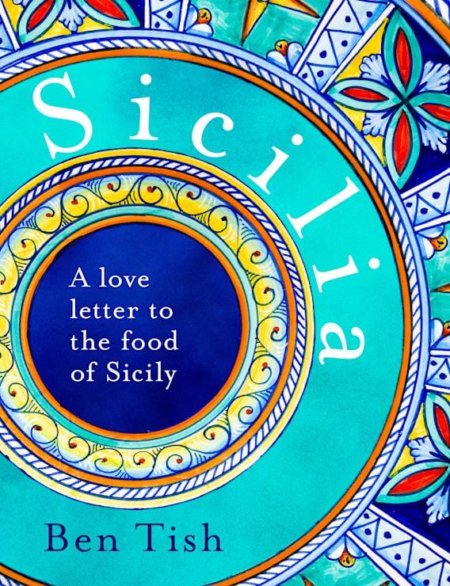


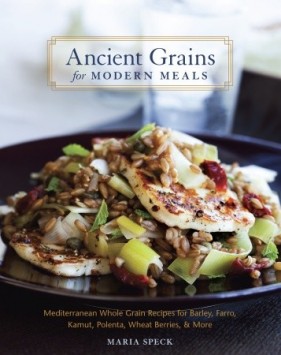
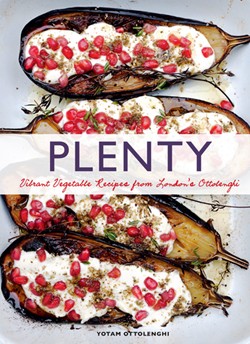
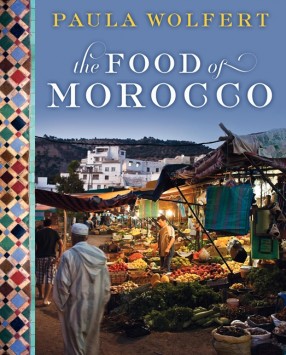
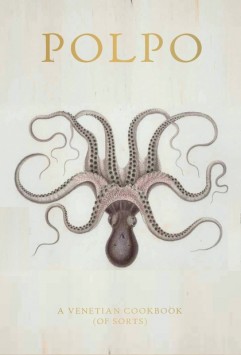

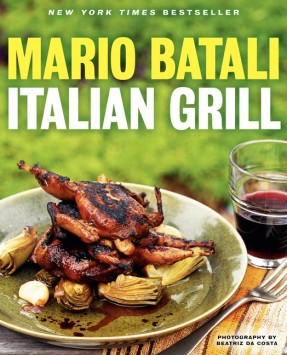
Leave a Reply